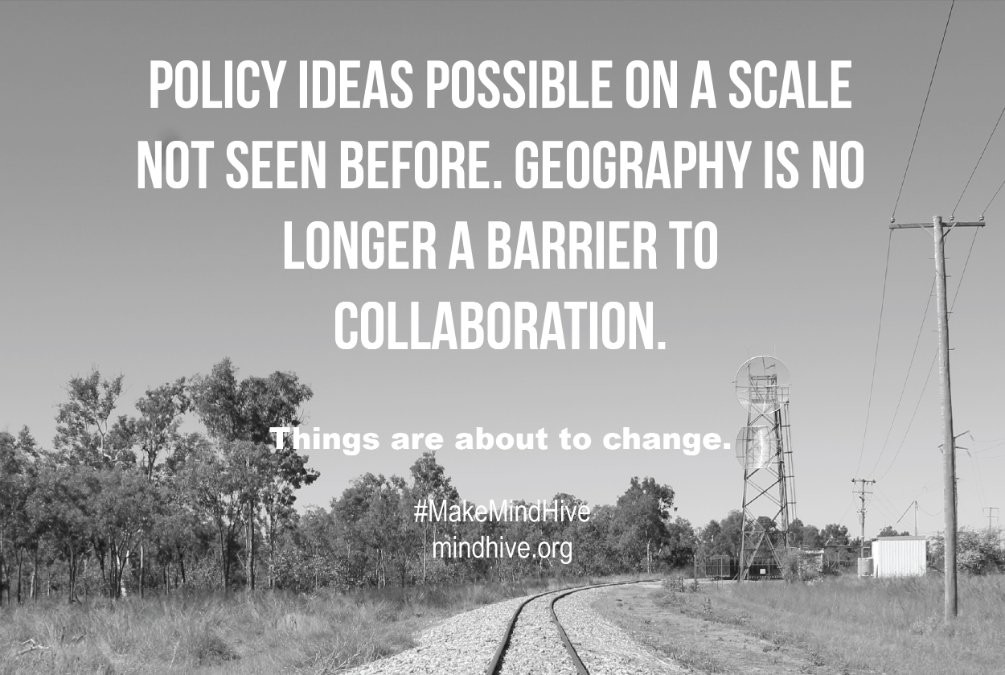
What began as a simple ‘anti-trend’ is set to emerge as one of the defining mega-trends of the future, altering forever the ways in which individuals and communities become more involved – and more powerful – in the policy and strategy making process.
The term crowdsourcing was coined way back in 2006, after several experiments utilising the ‘wisdom of crowds’. The premise (and promise) of crowdsourcing is that it allows organisations to canvass the ‘wisdom of the crowd’ by connecting to a large number of people who share a common goal, all at once – harnessing the power of multiple minds, in other words, to creatively solve problems.
Early on, the most common crowdsourcing technique was in the form of a contest, miming a consumer test in a cost effective way. It was also used when a job was just too big for any one person or organisation – NASA’s famous experiments with ‘clickworkers’ eager to classify the craters on Mars, for example.
However, with the pervasive presence of social media, we’ve become habituated to connecting with others across themes, issues, and common interests. Each opinion matters and through social media platforms every voice has an opportunity to be heard. The time is now ripe for bringing the power of the crowd not only to the political process but also to the way policy is discussed, formulated, and implemented.
Crowdsourcing, which emerged as a reaction to protected corporate and academic ‘silos’, resulted in freeing research and development to external leveraging. Companies now face competition not solely from peers but also from the ‘empowered user himself’. It’s now possible for individuals to create products that are specifically relevant to their needs, allowing individuals to be both consumer and manufacturer.
This is an idea that’s caught on and is now being applied to other contexts. Environmental degradation and resource depletion and the all-encompassing issue of climate change represents a mega-trend that looms large over our global community. As the planet consumes more than its fair share of resources, sustainability becomes more than just a buzzword: it becomes a doom-laden imperative. It’s a mega-trend that is compounded and multiplied by population growth, industrialisation and the cultural revolution which has seen millions in emerging markets foster aspirations of a Western lifestyle.
Of course, the micro-trend, in this instance, is environmentalism. Although the Green movement has grown to occupy a position of increasing global prominence, it began as a reactionary grassroots movement against the mega-trend of resource depletion and consumer-driven westernisation. The first decade of the 21 century has seen this movement grow exponentially, both in Australia and worldwide, on the back of climate change concerns. It’s a shift outlined by ‘Buying Into The Green Movement’ an article published in The New York Times in 2007, identifying the ‘green is the new black’ mainstream type of environmentalism, which has, in itself, become something of a major trend.
“Here’s one popular vision for saving the planet: Roll out from under the sumptuous hemp-fiber sheets on your bed in the morning and pull on a pair of $245 organic cotton Levi’s and an Armani biodegradable knit shirt. Stroll from the bedroom in your eco-McMansion, with its photovoltaic solar panels, into the kitchen remodeled with reclaimed lumber. Enter the three-car garage lighted by energy-sipping fluorescent bulbs and slip behind the wheel of your $104,000 Lexus hybrid.”
Interestingly, some forecasters have predicted the development of a macro-trend against this mainstream adoption of green rhetoric as a reaction to the ‘sky is falling’ approach of many environmental causes. Apocalyptic environmentalism, it would appear, has a use-by date. It is a trend within a trend.
So, just as environmentalism emerged as a reaction to global environmental degradation, crowdsourcing is an ‘anti-trend’ that has taken on all the force of a ‘mega-trend’. Because online discussions operate as an important tool for participatory and deliberative democracy, it reduces power imbalances because online deliberation increases fairness.
Studies in crowdsourcing have shown a group of individuals with a variety of backgrounds generates solutions that are “more creative and innovative” than a group of specialised policymaking professionals.
Crowdsourcing works because it generates more ideas. By getting more ideas you’re raising the height of the Bell curve so there are more good ideas at the top. The ideas that you end up choosing will be more relevant, because they’ve developed from a range of perspectives. Additionally, open methodology is a more transparent and democratic system. People can see where the ideas and outcomes are coming from and how they are developing. Because there is greater engagement, there is ultimately more support as the policy is implemented.
The changing nature of technology and social networking has enriched local and global connections. The ability to leverage a variety of resources by consulting partners, business leaders, policy wonks, community groups, and the best researchers offers a better alternative to the existing process, where decision makers in a few select chambers and corridors.
In today’s global world, our problems are shared. They are rendered infinitely more complex as the lines between public, private and governmental institutions continue to blur. Non-governmental organisations continue to increase in size and global reach. Traditional approaches to policy creation struggle to account for these profound structural changes.
With their specific set of resources, expertise and talent, collaborative online platforms will be a powerful force in unlocking new ideas and driving innovation.
In our current climate of rapid advancements in technology and the rise of online social networking as a medium for democratic conversation, anything is now possible and nothing is stagnant.
@brucemuirhead Founder, mindhive.org | Speaker
This article was first published in The Australian, July 23, 2014 {http://www.theaustralian.com.au/higher-education/opinion/crowdsourcing-antitrend-takes-on-the-force-of-a-megatrend/story-e6frgcko-1226997864327#mm-premium} Privacy Policy
